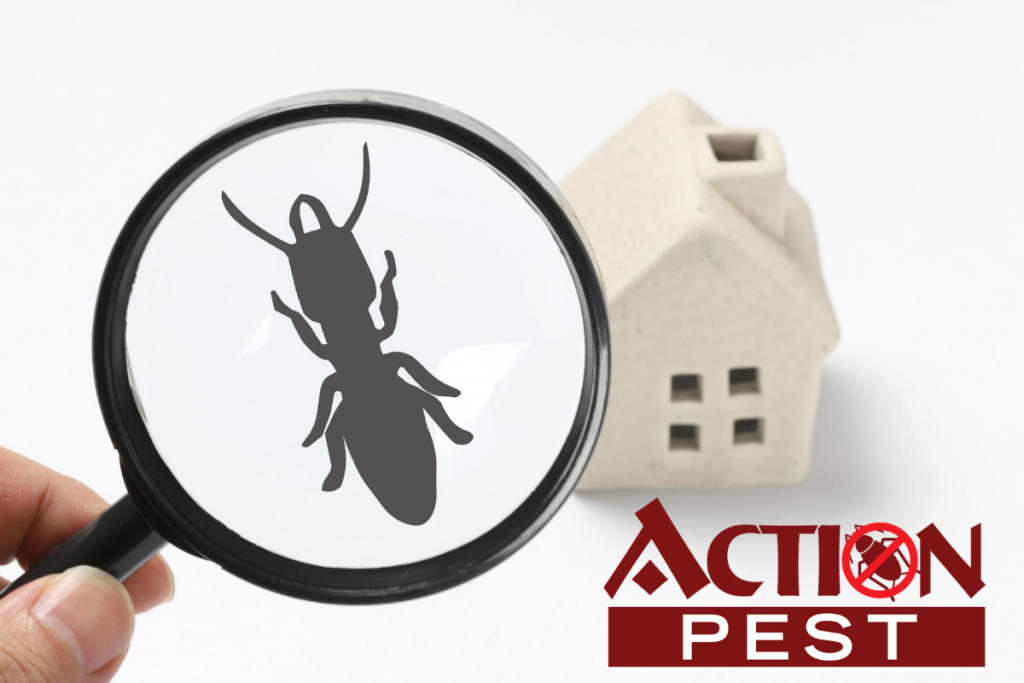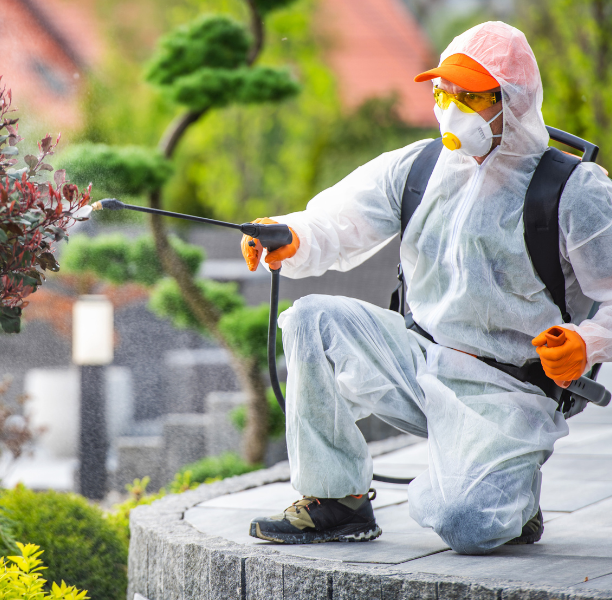Safe and Reputable Insect Control for Lasting Protection
Efficient insect administration requires a multifaceted approach that stabilizes environmental stability with the requirement for effective parasite reductions. The subtleties of these techniques may not be promptly clear, prompting a closer examination of the methods that can lead to sustainable insect control outcomes.
Comprehending Bug Control Techniques
Pest control incorporates a variety of approaches intended at managing and removing undesirable pests and rodents that can intimidate both health and wellness and residential or commercial property. Understanding these techniques is vital for efficient parasite monitoring.
The main categories of pest control approaches include mechanical, biological, and chemical approaches. Mechanical methods involve physical barriers and catches to prevent insect entrance and capture undesirable types. Making use of screens on windows or employing sticky catches can substantially decrease parasite populations without introducing hazardous materials - exterminator coquitlam.

Chemical parasite control is frequently one of the most identified approach, using chemicals to eliminate insects. These chemicals can be efficient however have to be made use of with care to stay clear of unfavorable effects on non-target species and the setting.
Benefits of Eco-Friendly Solutions
Exactly how can green services change bug control methods? The adoption of green bug control techniques offers various advantages, dramatically improving the efficiency and security of parasite administration.

One more benefit is the favorable influence on neighborhood biodiversity. Eco-friendly solutions are designed to target particular bugs while preserving beneficial pests and wild animals, promoting a balanced ecological community. This approach aligns with the growing consumer need for sustainable methods, improving the online reputation of parasite control companies.
Integrated Parasite Management Techniques
The application of eco-friendly services normally leads to the adoption of Integrated Parasite Monitoring (IPM) strategies, which additionally improve parasite control effectiveness. IPM is a holistic method that integrates several tactics to manage insect populaces while minimizing environmental impact. This approach stresses using organic, cultural, mechanical, and chemical controls, guaranteeing a sustainable and balanced method of parasite monitoring.
One basic aspect of IPM is the detailed analysis of parasite activity and environmental conditions. By monitoring parasite populaces and determining their life process, practitioners can implement targeted treatments that interrupt the pest's environment or lifecycle, lowering reliance on chemical pesticides. Furthermore, cultural methods such as crop turning and environment control can significantly lessen parasite facility and recreation.
One more critical element is using organic control agents, such as valuable pests or bacteria, which can normally subdue parasite populations. When chemical applications are necessary, IPM prioritizes making use of low-risk pesticides and applies them precisely, decreasing exposure to non-target microorganisms and humans.
Including IPM techniques not just enhances bug control efficiency but additionally promotes a safer ecological community, lining up with the expanding need for sustainable practices in bug administration.
Safe Practices for Property Owners
Understanding the importance of risk-free methods in bug control can equip house owners to properly handle pest concerns while safeguarding their health and the setting. Executing preventative procedures and non-toxic methods is vital in do your pest control minimizing exposure to damaging chemicals.
House owners should first assess their environment for conditions that attract insects, such as standing food, water, and clutter waste. Frequently cleansing and sealing entrance points can hinder insects from getting into the home. Using natural deterrents, such as crucial oils or diatomaceous planet, can give effective options to chemical pesticides.
When chemical treatments are required, home owners need to select items that are especially identified as secure for residential usage. It is essential to follow application guidelines carefully to prevent overexposure. In addition, making use of targeted treatments in locations where pests are recognized, as opposed to covering spraying, can considerably minimize chemical usage.
Finally, preserving open communication with insect control experts is important. Homeowners should inquire concerning the safety and security of products used and demand eco-friendly choices whenever feasible. By adopting these secure techniques, homeowners can develop a healthier living setting while effectively handling pest concerns.

Tips for Long-Term Defense
Establishing a parasite monitoring technique that stresses long-term defense can significantly boost the performance of the secure practices previously gone over. To attain this, house owners need to implement routine assessments of their home, concentrating on concealed locations such as attic rooms, cellars, and crawl spaces. Early discovery of insect task is essential in preventing invasions from taking hold.
In addition, preserving a tidy setting is important. This includes appropriate food storage space, promptly cleaning spills, and consistently disposing of trash. These techniques decrease attractants that draw bugs into the home. In addition, securing access factors, such as cracks around windows and doors, can effectively block prospective bug accessibility.
Landscape design needs to also be considered; keeping plants cut and keeping a range between vegetation and the home reduces concealing spots for insects. Using natural deterrents, such as important oils or diatomaceous planet, can better inhibit invasions without turning to severe chemicals.
Lastly, teaming up with a specialist parasite control solution for routine examinations can provide an More Bonuses extra layer of security. These professionals can use customized referrals and progressed therapies, making sure that your home remains safeguarded versus insects in the long page term.
Conclusion
Finally, dependable and secure parasite control needs a diverse method that stresses eco-friendly approaches and integrated bug management. By applying natural deterrents, conducting routine assessments, and maintaining appropriate hygiene, homeowner can considerably lower insect populations while shielding beneficial insects and the atmosphere. Partnership with specialist insect control services enhances the efficiency of these techniques, guaranteeing customized services that offer long lasting protection and satisfaction against future invasions.
Effective pest management calls for a complex approach that stabilizes eco-friendly integrity with the need for efficient insect reductions. The fostering of green bug control approaches uses countless advantages, substantially enhancing the efficiency and safety and security of bug monitoring.The implementation of eco-friendly options normally leads to the adoption of Integrated Insect Monitoring (IPM) approaches, which even more boost insect control efficiency. exterminator coquitlam. By keeping an eye on insect populations and identifying their life cycles, professionals can execute targeted interventions that disrupt the parasite's habitat or lifecycle, lowering reliance on chemical pesticides.In conclusion, risk-free and reputable pest control requires a diverse strategy that stresses environmentally friendly methods and integrated parasite administration